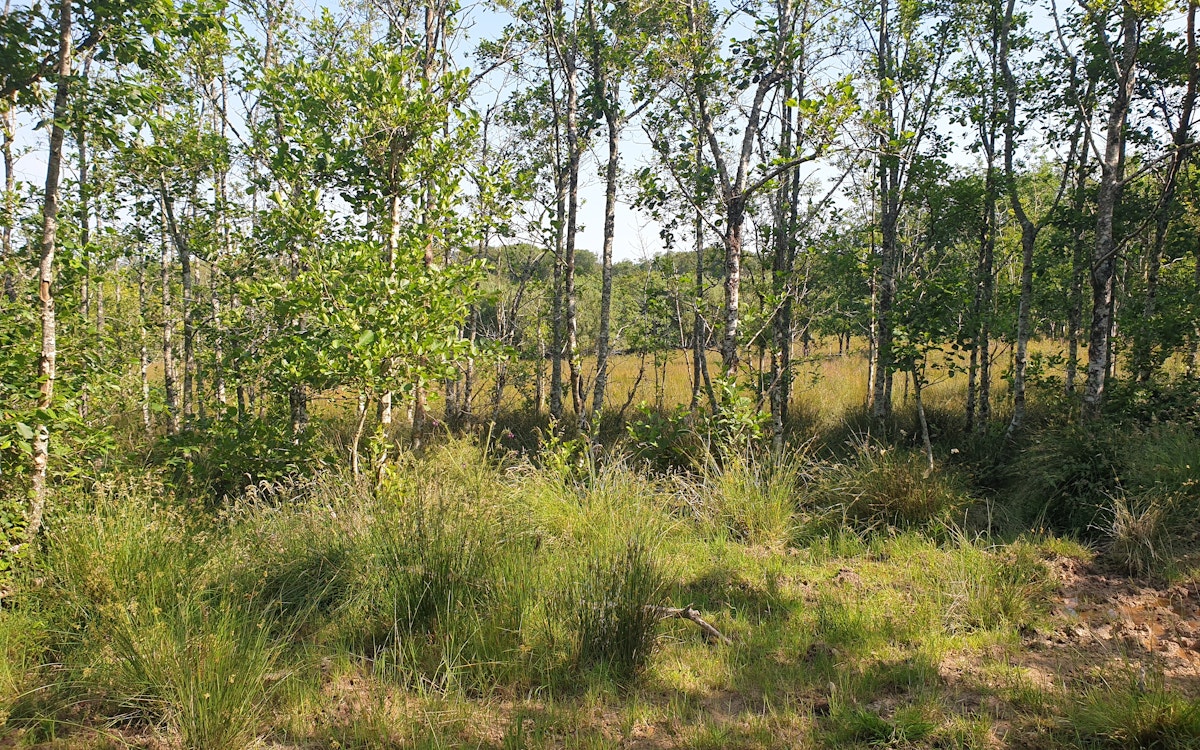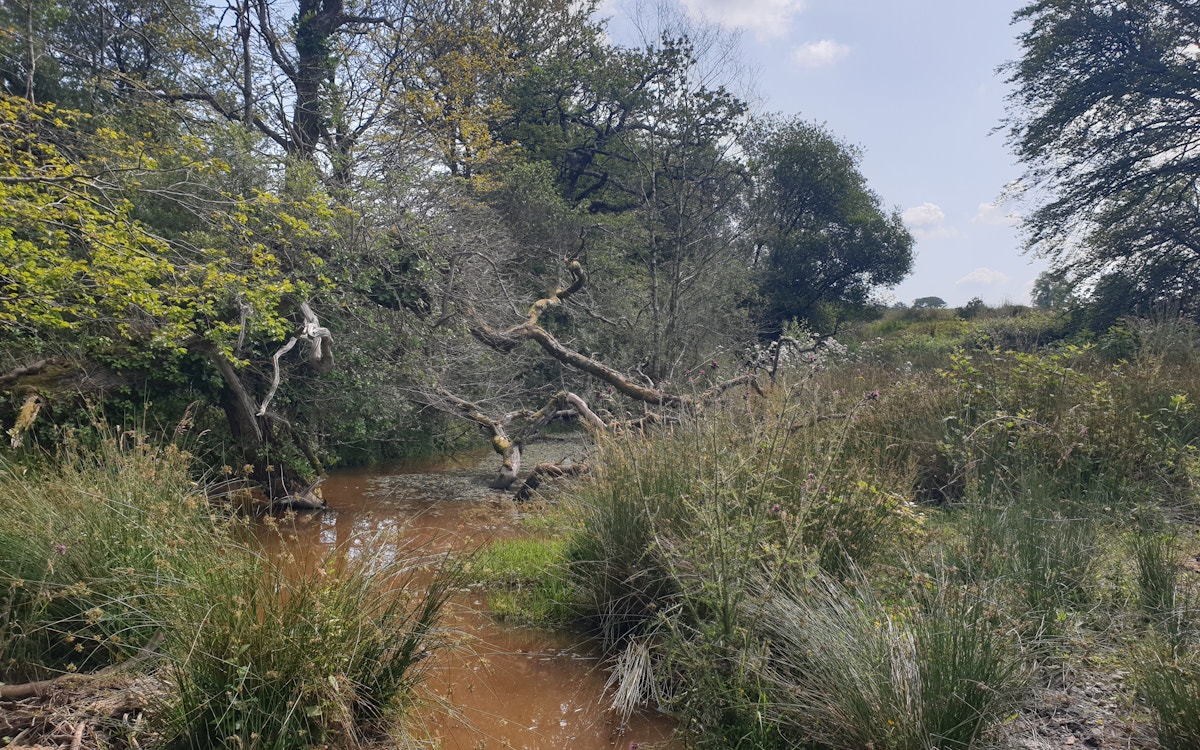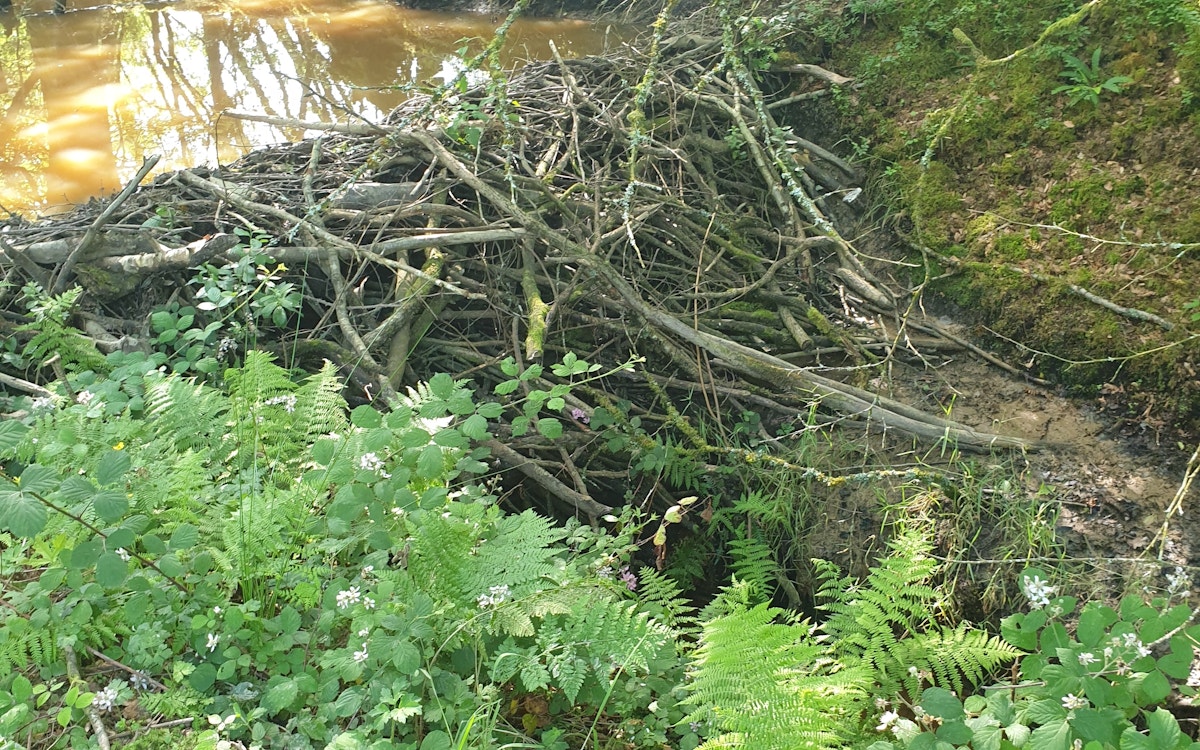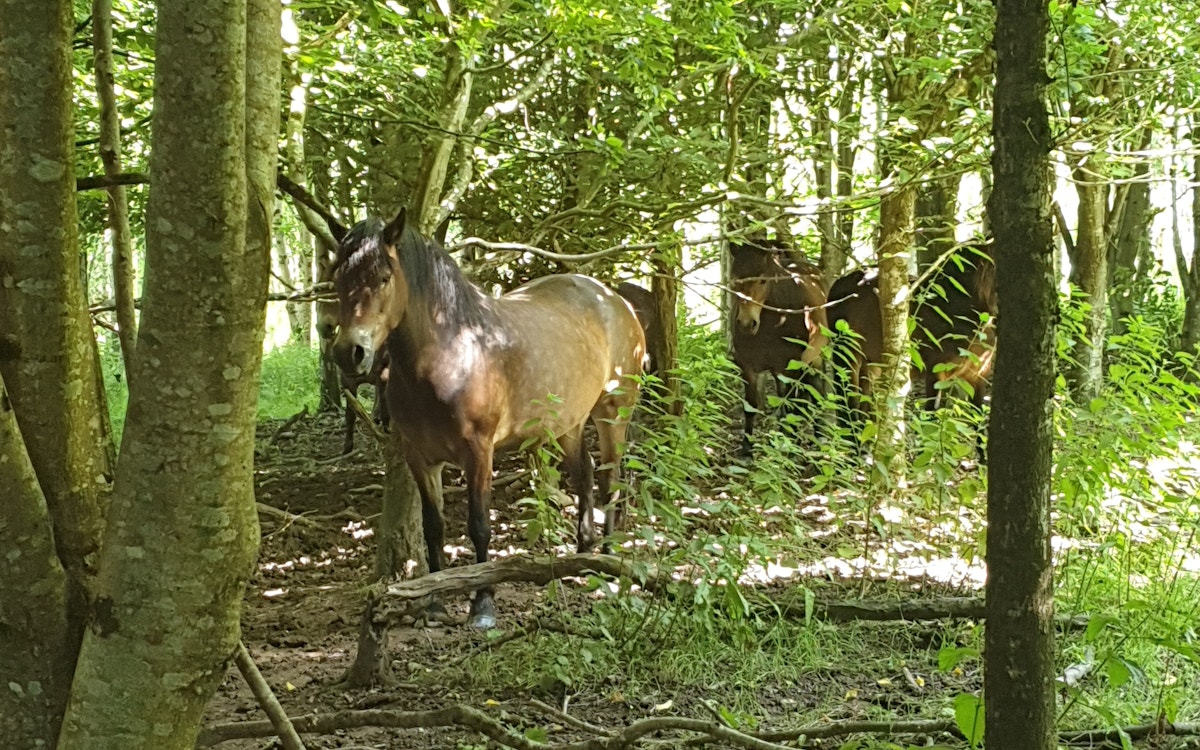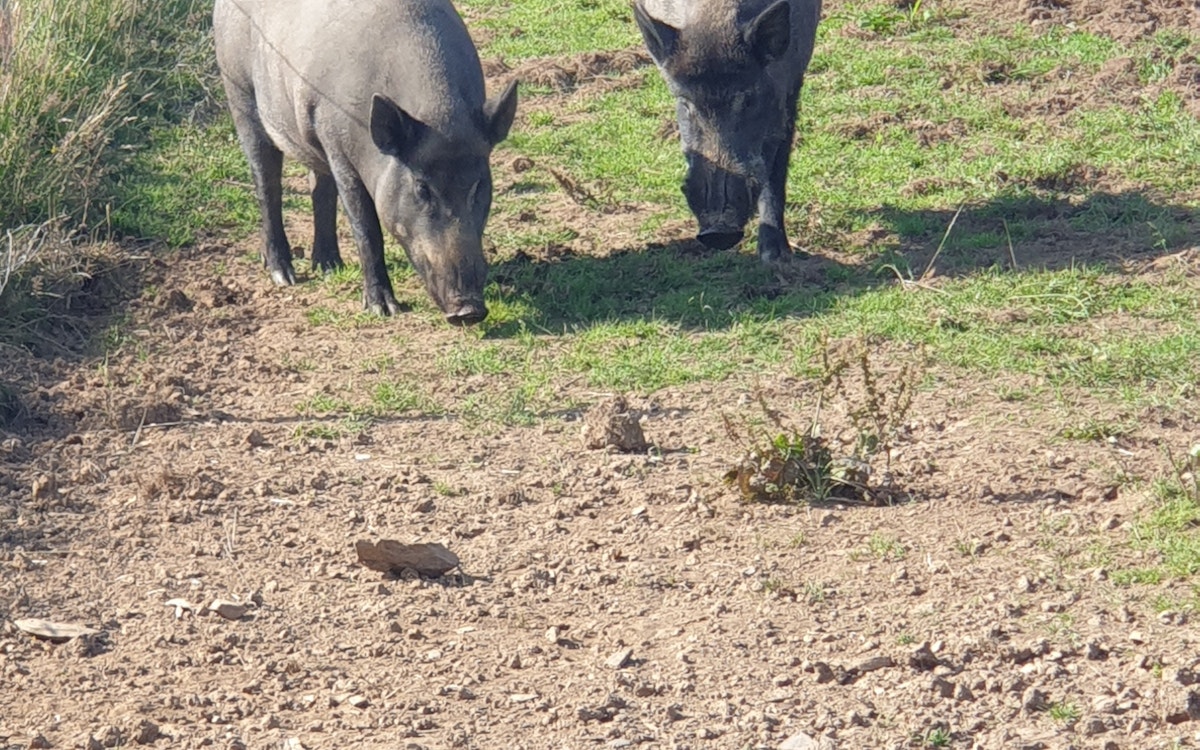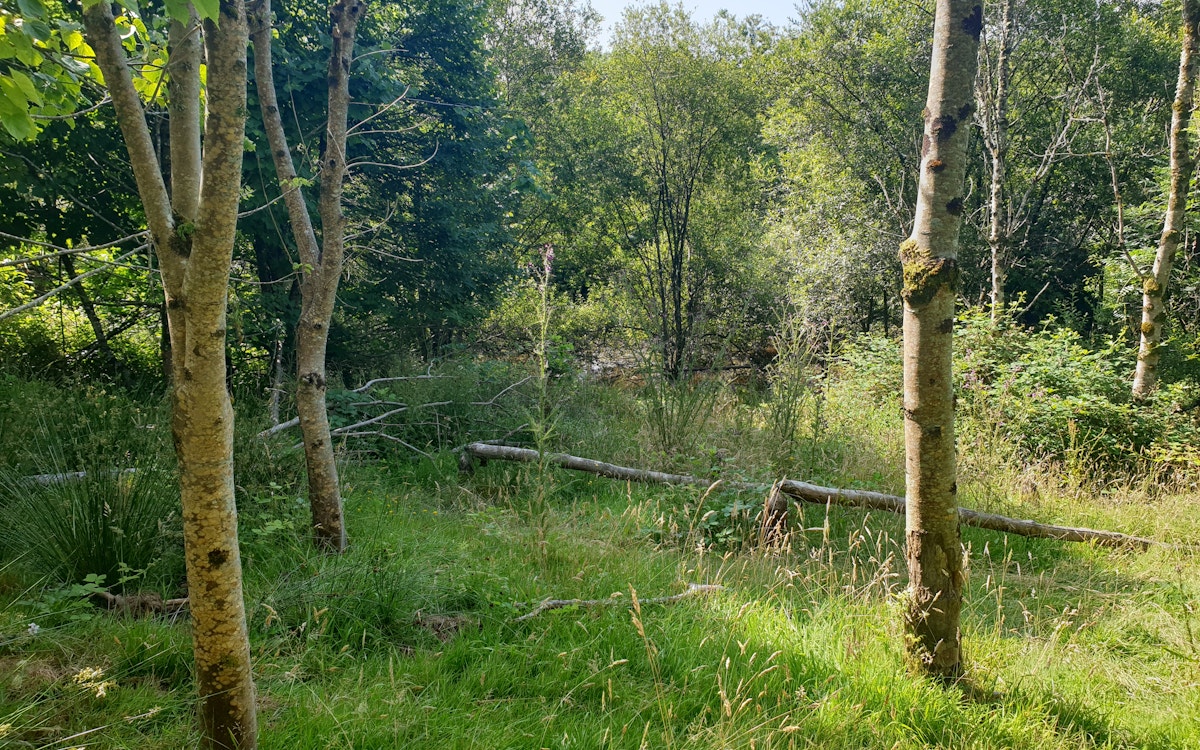Upcott Grange Farm
Letting nature set its own course – changing a highly managed landscape to one of wildlife abundance.
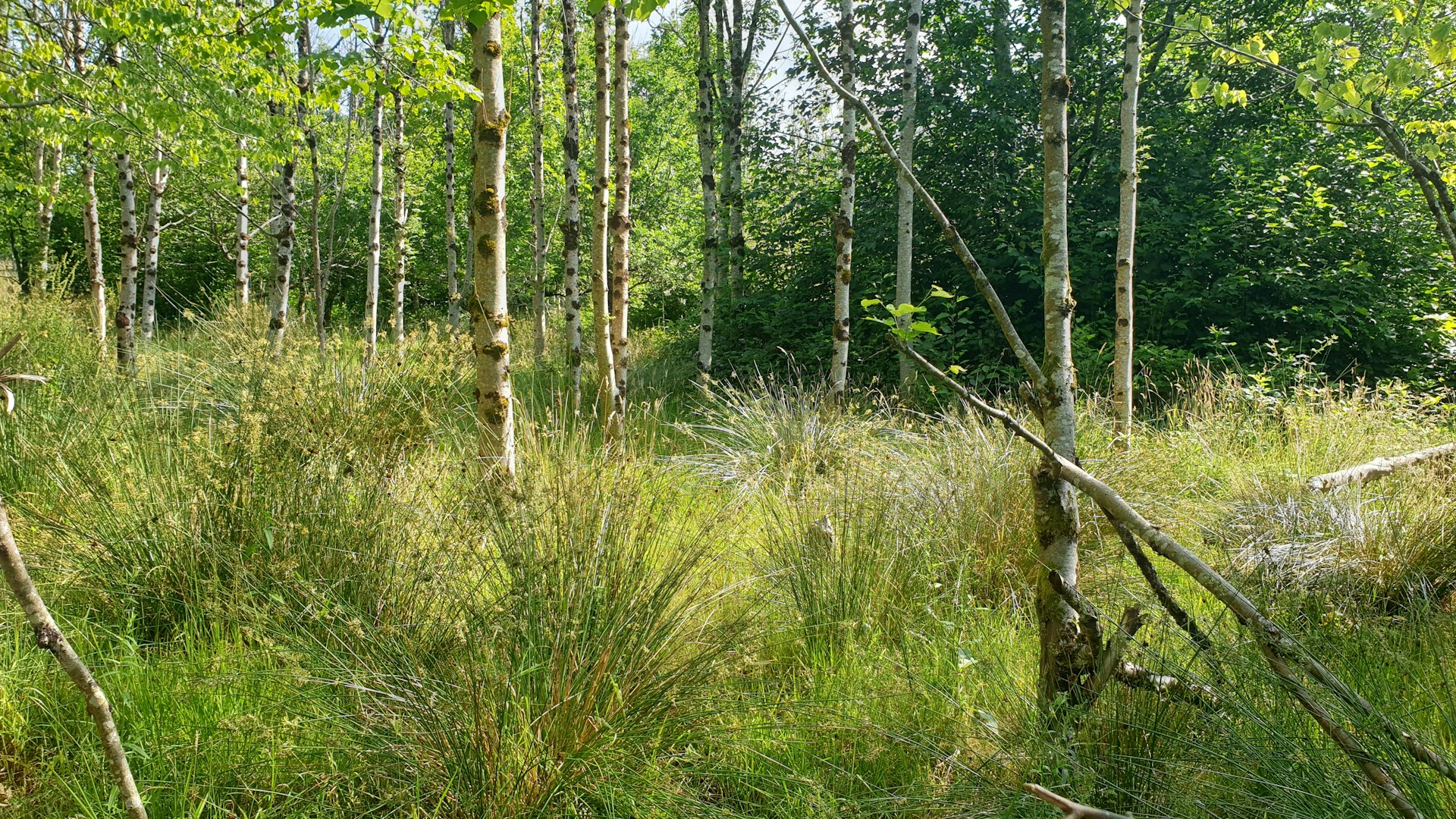
The Upcott Grange Farm rewilding project commenced in 2005 with the ambitious vision to give nature space to lead the way through a reduction in management and grazing pressure. The project has a long-term view – through restoring natural processes, life will slowly return, and nature will be able to set its own course. The intensive sheep and beef cattle grazing was removed from the landscape, to be replaced with low numbers of large herbivores. These animals act as proxies for large herbivores that used to be a common sight in our landscapes – mimicking the impact of the extinct Aurochs, Tarpan, and of wild boar. Heck cattle, Exmoor ponies, Iron Age pigs, beavers and mouflon now roam the landscape, creating a diversity of ever changing habitats and opportunities for wildlife to thrive.
The site also supports an extensive breeding facility, focused on breeding animals for restoration projects. The breeding facility has provided animals for several national reintroduction projects, including water voles, beavers, wild cats, white storks, Greylag geese, pool frogs and pole cats.
NATURE BASED ENTERPRISE
New nature based enterprises have been created on site as part of the rewilding project. Eco-tourism is now established on site, supporting glamping, camping, and safaris. Shepherd’s huts have been installed in private pastures, offering opportunities for wildlife watching and photography. Film production and photography enterprises are also supporting rewilding across the site.
The project also has a new rewilding and ecological education programme. This programme offers unique opportunities to learn practical skills around breeding, planting, and rewilding similar landscapes. The education programme provides an additional income stream for the project, whilst passing on knowledge and skills to the next generation of rewilders.
KICK-STARTING REWILDING
Nature has been given the space to set its course within the landscape and dominate on site. Grazing pressure has been reduced on site through the removal of sheep grazing and beef cattle grazing. Low numbers of Heck cattle, Exmoor ponies, Water buffalo and Mouflon have been introduced to the site to mimic natural herbivore grazing, and fences have been removed to allow these animals to naturally move through the landscape. A small number of iron age pigs have also been introduced to mimic wild boar behaviour and act as natural ploughs.
Beavers are present in the valley. This ecosystem engineer is creating a new wetland complex for a range of different species, and storing more water on the site.
Natural regeneration of vegetation has been encouraged across the landscape through a reduction in grazing pressure and intensive management practices. Supplementary native tree planting has been implemented in some places to encourage species diversity.
future plans
- Continue hydrological monitoring with the University of Exeter
- Leading on proposed species reintroduction programmes, including white stork (currently in progress) and restoring wild cats

The Rewilding Network
The Rewilding Network is the go-to place for projects across Britain to connect, share and make rewilding happen on land and sea.
More about Upcott Grange Farm
Find out more about Upcott Grange Farm on their website.
